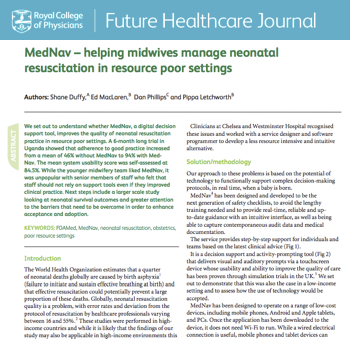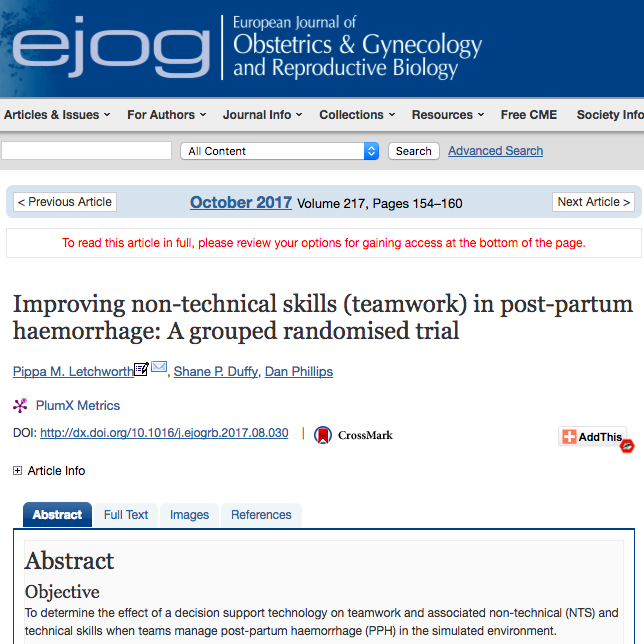Mednav has been assessed through rigorous trials with multidisciplinary teams in Chelsea and Westminster Hospital's simulation environment and at Kitovu Hospital in Uganda. We have also carried out interdisciplinary studies with surgeons training for austere environments.

Helping midwives manage neonatal resuscitation in resource poor settings
We set out to understand whether MedNav, a digital decision support tool, improves the quality of neonatal resuscitation practice in resource poor settings. A 6-month long trial in Uganda showed that adherence to good practice increased from a mean of 46% without MedNav to 94% with MedNav.

Improving non-technical skills (teamwork) in post-partum haemorrhage
38 teams were recruited to understand the impact of MedNav on teamwork during post-partum haemorrhage emergencies. Using the control group as baseline, the intervention improved teamwork skills by 25%. Assessors were more likely to recommend intervention teams (87.5%) than control teams (63.6%) to their friends or family.
These studies show a 104% improvement in task compliance during neonatal resuscitation and a 25% improvement in team-working scores during post-partum Haemorrhage.
Papers associated with our research have been published in the Royal College of Physician's Future Healthcare Journal and in the European Journal of Obstetrics & Gynecology and Reproductive Biology
If you are interested in our research methods or would like to undertake further studies in other areas please contact our Medical Director.
